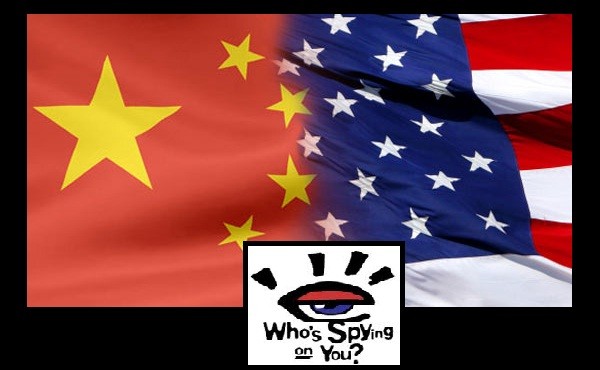
In popular myths, a bogeyman is an imaginary monster used to frighten children. And in the world of espionage and counter-intelligence, picking between the tinker, tailor, soldier and the SPY, is a tough task. Nevertheless, sometimes, a bogeyman is created just to keep an illusion alive and this what the US has been doing with China.
The US anxiety stems from the fact that the Chinese intelligence agencies are masters in planting moles. The paranoia of a successful insertion has always kept the US on its toe. The Chinese intelligence agencies are under the direct control of Ministry of State Security (MSS), whose main objective is to maintain the rule of the communist party, and for that it tracks and neutralises the 'enemies' of China. But what gives China an upper hand is the successful record of MSS in infiltrating and establishing spies, posing as ordinary citizens, across the world.
In the most recent US-China espionage mudslinging, US Congressman Mike Rogers last week told members of the European Parliament in Brussels that if the EU continued to point fingers at the US snooping on European citizens and institutions, it may indirectly be helping China spy on both American and European companies. Rogers also claimed that the Chinese cyber espionage has already cost the US economy $400 billion dollars.
The comments from Congressman Rogers has come at the most inappropriate time, especially when the US is neck deep in the Edward Snowden's NSA leak. The National Security Agency that is facing charges of spying on its own people, besides other countries, is still coming to terms with a check-mate from an inside man.
Snowden exposé in June 2013 dropped the bomb as it revealed information on surveillance programs such as PRISM, XKeyscore and Tempora that now has put the US in a 'very uncomfortable' position in the world.
Even the Chinese have used the Snowden episode to shame the US. In an edit piece, Xinhua Writers Luo Jun, Zheng Kaijun stated: "...those who played up anti-China rhetoric on the issue of cyber espionage might have also forgotten that Edward Snowden, the US security whistleblower, disclosed that US spy agencies had hacked deep into China's computer networks, including those of government, military, research, educational and business organizations."
The statement from US Congressman Rogers was something that he had picked up from the report published by the US-China Economic and Security Review Commission. Rogers, however, had stated the figure to be $400 billion, maybe he was trying an exaggeration, but the actual figure spent as per report by the Barack Obama administration to counter Beijing was $300 billion a year.
The report that was published in November again brought out the fears of US as it found that China-based hackers are targeting internet based email, data storage and other services provided on the cloud platform. The commission report also had noted that cloud computing, which connects Internet services "represents a potential espionage threat.
While the threat from China is real, the fears as expressed by the US government often borders paranoia. But it is founded on a simple theory - keeping the fear alive.
A British poet and writer GK Chesterton once said -"Fairy tales do not give the child his first idea of bogey. What fairy tales give the child is his first clear idea of the possible defeat of bogey." In short, the US successive governments have fed its citizen so much on fear that the Pentagon thinks that its people can't kept on a leash without 'the bogeyman.'

















